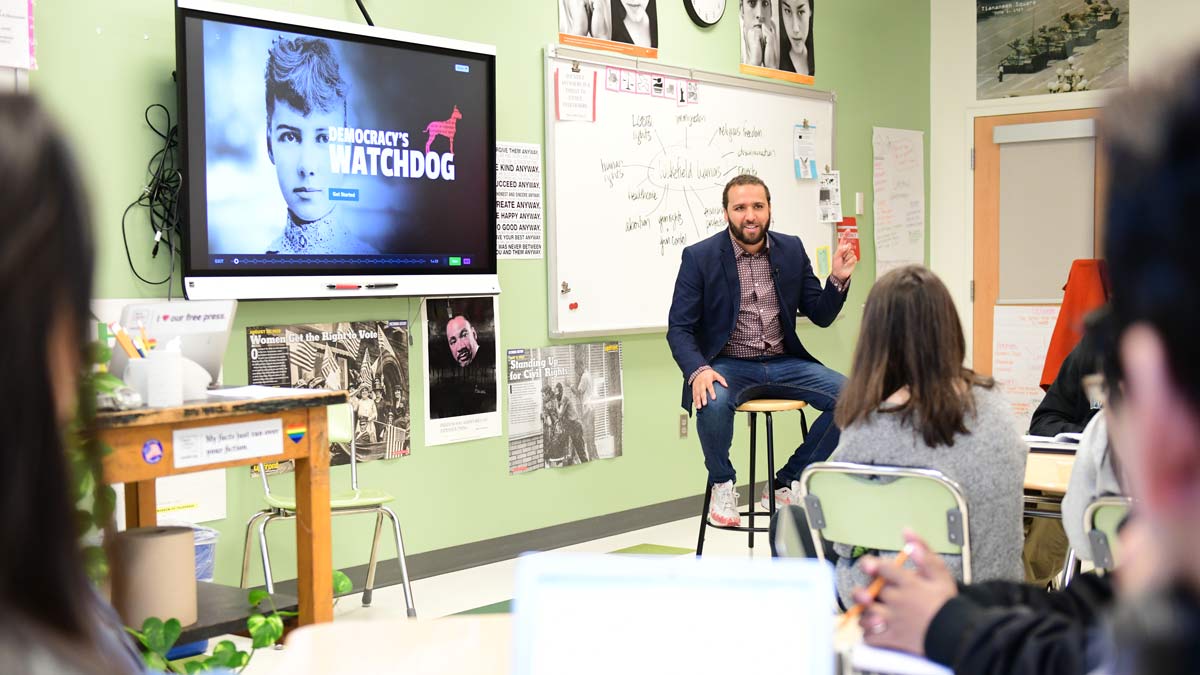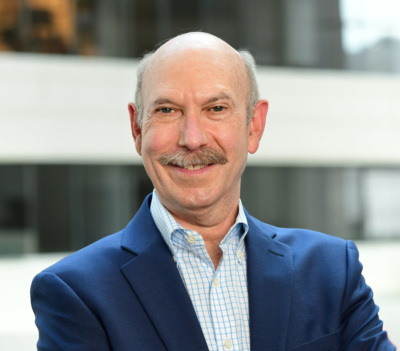
Upon Reflection: We need news literacy education to bolster democracy
This column is a periodic series of personal reflections on journalism, news literacy, education and related topics by NLP’s founder and CEO, Alan C. Miller. Columns are posted at 10 a.m. ET every other Thursday.
We live in what is often called the Information Age. We have a world of knowledge available to us, literally at our fingertips. This should be a Golden Age of Knowing.
Yet, as this week’s impeachment trial reflects, America now faces an epistemological crisis. And the stakes could not be higher.
Millions of Americans believe that November’s presidential election results did not represent the will of the people. Millions also believe that vaccines are unsafe amid a global pandemic, and that a cabal of Satan-worshipping pedophiles (who include prominent Democratic politicians) is secretly running the country.
How did we get here? And, more important, what can be done to reinforce reality-based thinking before conspiratorial thinking opens the door to tyranny?
A decline in trust of institutions, including the media; hyperpartisanship and tribalism; and the spread of divisiveness and extremism on social media platforms have all contributed to this existential challenge. At the same time, the country’s fractured civic society reflects an educational failure — one that has been some time in the making.
“As the information system has become increasingly complex, competing demands and fiscal constraints on the education system have reduced the emphasis on civic education, media literacy and critical thinking,” the RAND Corporation’s Jennifer Kavanagh and Michael D. Rich noted in their 2018 report Truth Decay: An Initial Exploration of the Diminishing Role of Facts and Analysis in American Public Life.
I founded the News Literacy Project 13 years ago to help teach the next generation to recognize the difference between fact and fiction and to understand the role of the First Amendment and a free press in a democracy. I chose to focus on reaching teens as they form the reading, viewing and listening habits that will last a lifetime.
In the last dozen years, I have seen — and, more important, educators have seen — that teaching news literacy empowers young people to question what they are reading, watching and hearing; seek credible information; be more mindful about what they share; elevate reason over emotion, and gain a greater sense of civic engagement. This is evident in anecdotal experience as well as evaluation surveys.
In assessment results of students (primarily middle school and high school) who completed one or more lessons in our Checkology® virtual classroom during the 2019-20 school year, we saw substantial gains in the percentages who could:
- Identify the standards or rules for news organizations and journalists to follow when reporting the news.
- Express greater confidence that they could recognize pieces of online content as false.
- Understand the watchdog role of a free press.
- Appreciate the role and importance of the First Amendment in our democracy.
Students have told us for years what it means for them to learn how to navigate their way through what has become a daily deluge of news, opinion, entertainment, advertising, opinion, propaganda, raw information and even flat-out lies.
“I was just overwhelmed by how much information there was,” said Kristen Locker, who received her news literacy instruction at Florida Gulf Coast University in Fort Myers. “Checkology taught me for the first time how to sort through all this information. That kind of blew open the doors for me.”
Sophia Fiallo, a student at the Young Women’s Leadership School of Astoria in New York City, said that before her news literacy training, she was “vulnerable to the spread of fake news” — but “thanks to Checkology, I’ve learned how to tell fact from fiction.”
Teachers also say that this skill is transformative for their students and their classrooms.
Nicole Finnesand, a middle school teacher in Colton, South Dakota, said that Checkology enabled her students, for the first time, to have civil discussions — ones that are not based on polarized opinions or on “arguments” published in The Onion, a satire site. “We get to use our class as a space to discuss ‘Well, what are the two sides? And how do we know what’s real and what’s not real?’”
Tracey Burger, a high school English teacher in Miami, said her students went from telling her that the Earth is flat to asking each other for verification of the information they share. Moreover, she added, they now “understand that theirs isn’t the only way to think.”
Suzanne, an English teacher in Connecticut whose students used Checkology prior to the Jan. 6 assault on the U.S. Capitol, said that because of what they learned, “we were able for the first time in five years of teaching to have a good conversation about current events in my room.” In her response to a recent survey, she described the discussion as “REALLY AMAZING as usually we avoid hot-button issues since they are more divisive, but news literacy takes all of that out and really just focused it in on things we can all agree on.” (Suzanne asked that her last name not be used because of her district’s policy on educator interviews.)
Here is the bottom line: Every state must adopt standards that include civics or media literacy courses, with lessons on determining whether what we are reading, watching and hearing is worthy of our trust. This essential life skill can help prevent our young people from becoming locked in echo chambers or lured down rabbit holes by online extremism.
Bradley Bethel, an English teacher in Graham, North Carolina, said his — and his students’ — experience with Checkology has reinforced the critical importance of this knowledge.
“Equipped with the language to discuss the news and current events analytically, my students now rely less on their emotions, more on reason and evidence,” he said. “They have developed a shared set of norms for determining truth. If our students can bring that shared set of norms to our society more broadly, we might have a chance at renewing civility.”
Read more from this series:
- Apr. 22: Spotlight — a special resonance
- Apr. 8: The 19th* — a nonprofit news startup made for the moment
- Mar. 25: How I became a ‘pinhead’ — a news literacy lesson
- Mar. 11: Fighting the good fight to ensure that facts cannot be ignored
- Feb. 26: Students’ enduring rights to freedoms of speech and the press
- Jan 28: 13 lessons from our first 13 years
- Jan. 14: Media needs to get COVID-19 vaccine story right
- Dec. 17: Journalism’s real ‘fake news’ problem also reflects its accountability
- Dec. 3: Combating America’s alternative realities before it’s too late
- Nov. 12: “Kind of a miracle,” kind of a mess, and the case for election reform
- Oct. 29: High stakes for calling the election
- Oct. 15: In praise of investigative reporting
- Oct. 1: How to spot and avoid spreading fake news
